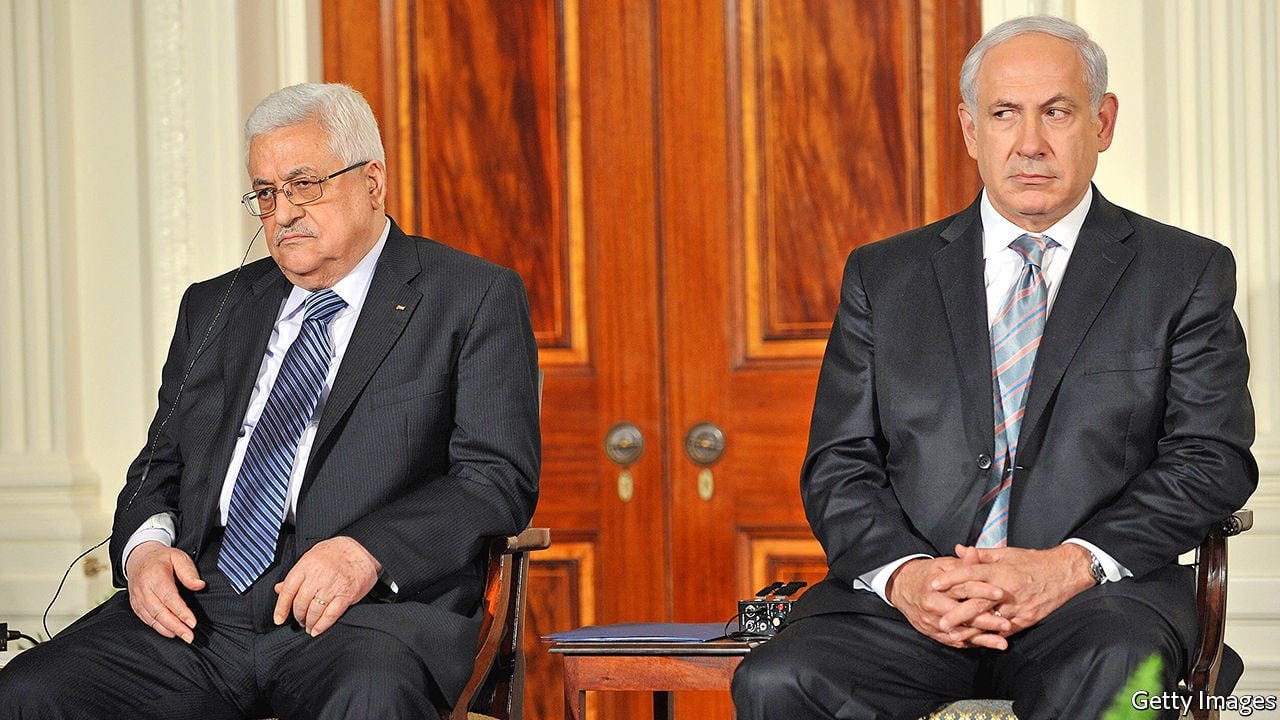One of the most striking pushbacks I’ve received during my advocacy for peace between Israel and Palestine is the argument that I am arguing for peace on Israeli terms.
This, obviously, is a bit of a strange argument to hear, because as I’ve argued before, peace is most urgent for the side that is losing the most from conflict. And in this conflict, that is obviously the Palestinians, predominantly the Palestinians in Gaza. We have all seen the death and destruction there, and it’s a festering disaster.
And also, I’m not Israeli, and don’t have any personal attachment to Israel. I’m a Palestinian-British man, and while I believe in being fair and compassionate to all, my interest in the conflict is predominantly an attempt at trying to end the discomfort and suffering of Palestinians, including my own close family.
But if you’re desperate for a drink of water, you might overpay for it. Generally speaking, in a historical sense peace is cheaper if you’re winning the war, and more expensive if you’re losing the war. So it seems to me that the idea that somehow making peace now is doing so on Israeli terms is simply a product of the fact that Israel, right now, is on top, and that at some point further in the future, Palestinians might be on top, or at least in a less desperate situation.
I mean, if you look back at the last two thousand years of history, Arabs have been quite dominant in the middle east. There has been Arab and Muslim control of what is now Israel and the Palestinian territories for more than a thousand years. 77 years of Israeli control is a much shorter span of time. So, the logic goes, at some point Israel will be defeated and driven out, like the Byzantines, the Crusaders, the Ottomans, the British and many others. The argument I hear most often from Hamas and their fellow travellers is that one day there will be a situation where Palestinians and Israelis can fight on equal terms, body to body, man to man, hand to hand. And the true believers believe that when that day comes, Palestinians will win. That’s an embodiment of Islamic supremacism, of course. They believe that Muslims are just better fighters.
The problem with this logic is that it’s just like a man in a casino who lost a million dollars and now wants to put all of his other possessions on the table. In gambling, people call this tilt, or the desire to push more and harder to eventually come back as a winner. And Hamas and their jihadist ideological allies have been tilted ever since the beginning of the Zionist movement. Not only that, but there is an element of sunk-cost fallacy at play. Palestinians already sacrificed so much, why would they sue for peace after all of the bloodshed and suffering?
But in war you are not just gambling with your money, or house, or prosperity. You are gambling with people’s lives. Especially as is the case in Gaza today if the civilians who want no part of the war are not allowed to freely evacuate. It’s a nightmarish reality. And the fact is that there is no guarantee of any kind of mean reversion or fate reversal. Israel has nuclear weapons and a modern technologically advanced economy. The wars of the future will not be fought man to man, or body to body. They will be fought with drones, robots, and AI. Does Hamas believe that they will have an appreciable advantage over Israel on that front? The future is never certain, but to me from the past seventy years it certainly seems like the prospects for Palestinians are getting bleaker and bleaker. In other words, the terms in the future may be much more favourable to Israel than the status quo.
To see that, you only have to compare what was on the table twenty years ago—like, for instance, a 2-state solution along the 1967 lines with land swaps—to the Trump plan which would see Palestinians in Gaza being involuntarily resettled elsewhere, and Gaza becoming an American protectorate, or a part of Israel.
Personally, I think the Trump plan is madness, and would amount to a form of ethnic cleansing, but the reality is that had we taken the opportunity to establish peace in the 1990s or 2000s—regardless of whether we considered the deals offered to be suboptimal—we might well not be having to listen to the Trump plan today. Palestinians could be celebrating their twentieth or thirtieth independence anniversary. But Hamas did not want this. They wanted all of Palestine from the river to the sea.
Yes, there are Israelis such as Kahanists and arguably also Netanyahuists who also want all of the land from the river to the sea. But the nature of the current conflict is not hurting them the way that it is hurting Palestinians. It is Palestinians who are most wounded by their extremists.
To be honest, I think that the terms of peace will ultimately be somewhere between the terms of both sides. It is a matter of give and take, and a matter of negotiation, and in establishing peace we have to make sure that it is sustainable and a peace based on pain and impoverishment will be intolerable and unsustainable. That means that there are real and substantive incentives for Israel and Palestinians to be accommodative in both directions. Really, even today, I think that willingness for peace, understanding and compassion can go a long way. Reconciliation can make Palestinians and Israelis into a brotherhood, instead of warring national factions.
I believe in peace on the terms of human beings coexisting together. That’s my position, and that is where I stand for the long term, regardless of the trajectory of the current conflict.
The point is to end the conflict, end the suffering, end the hate, and end the disaster. Those are my terms.


